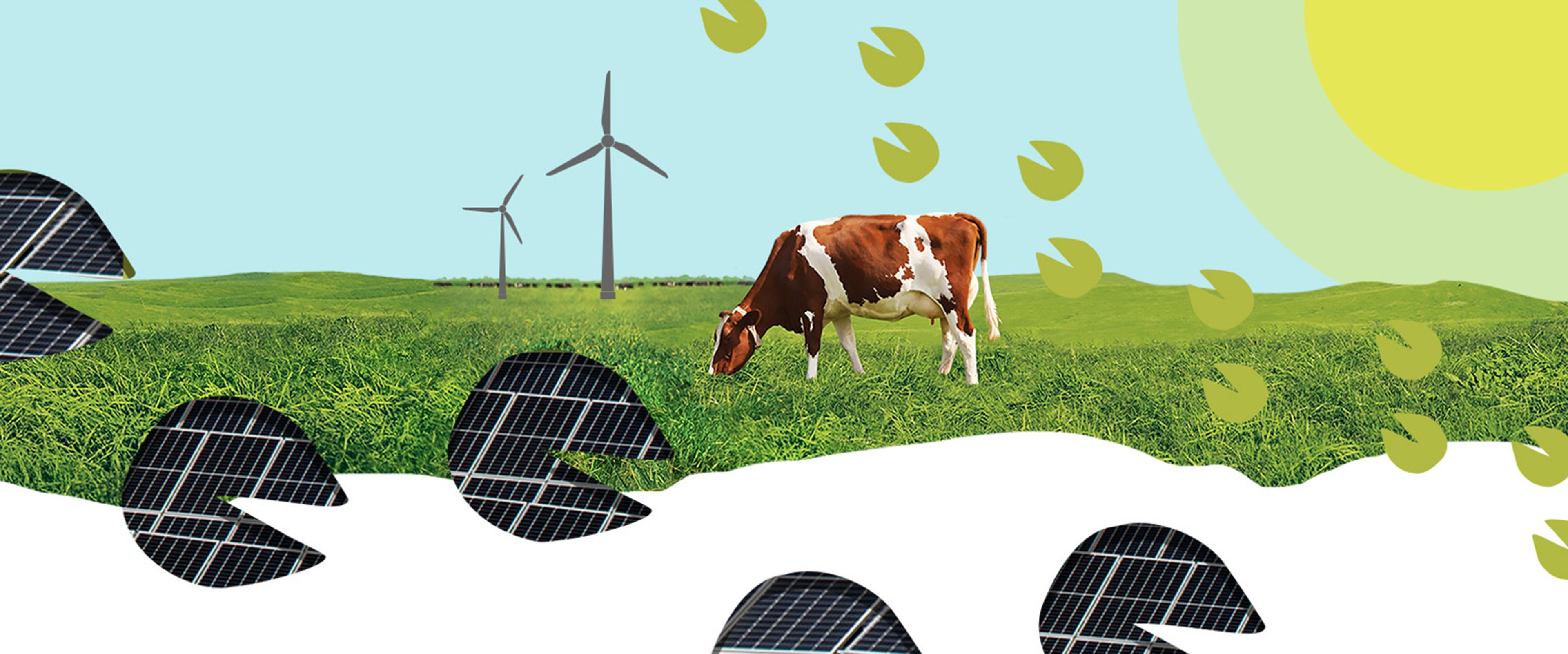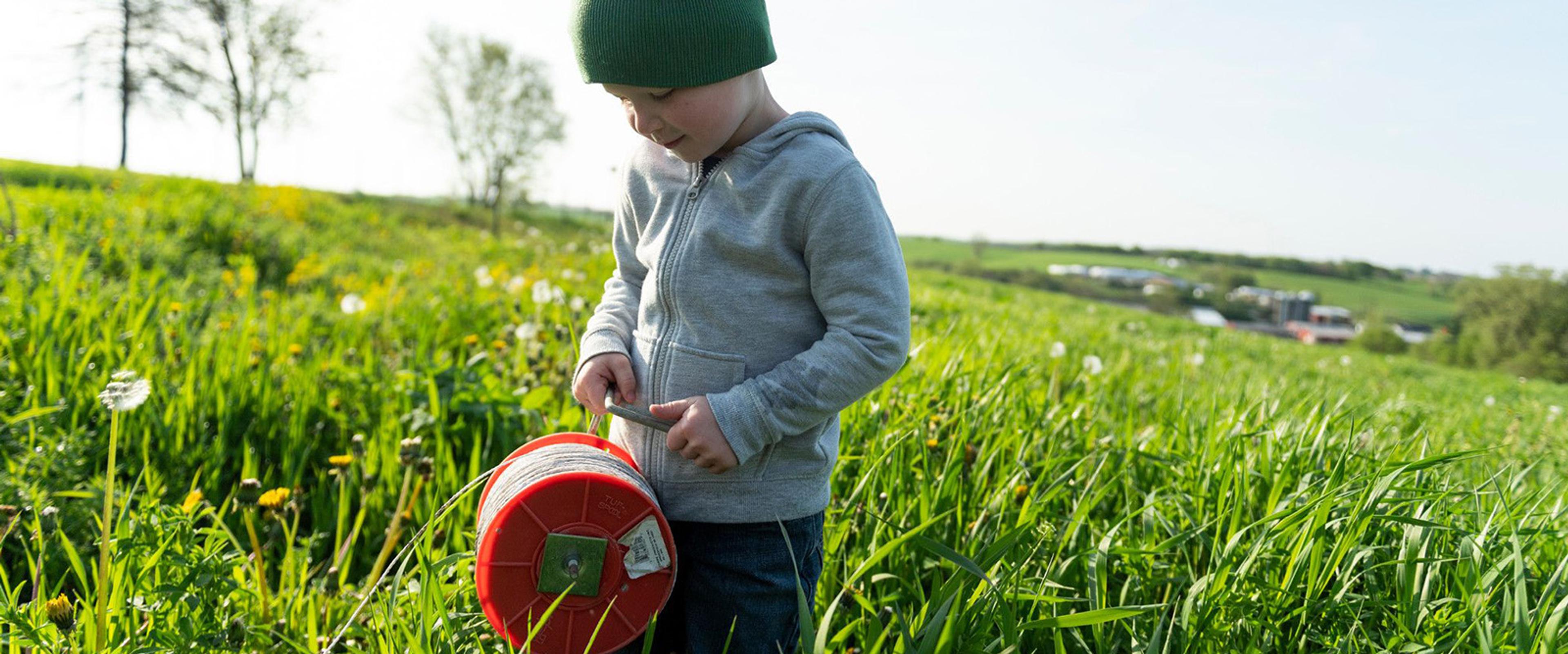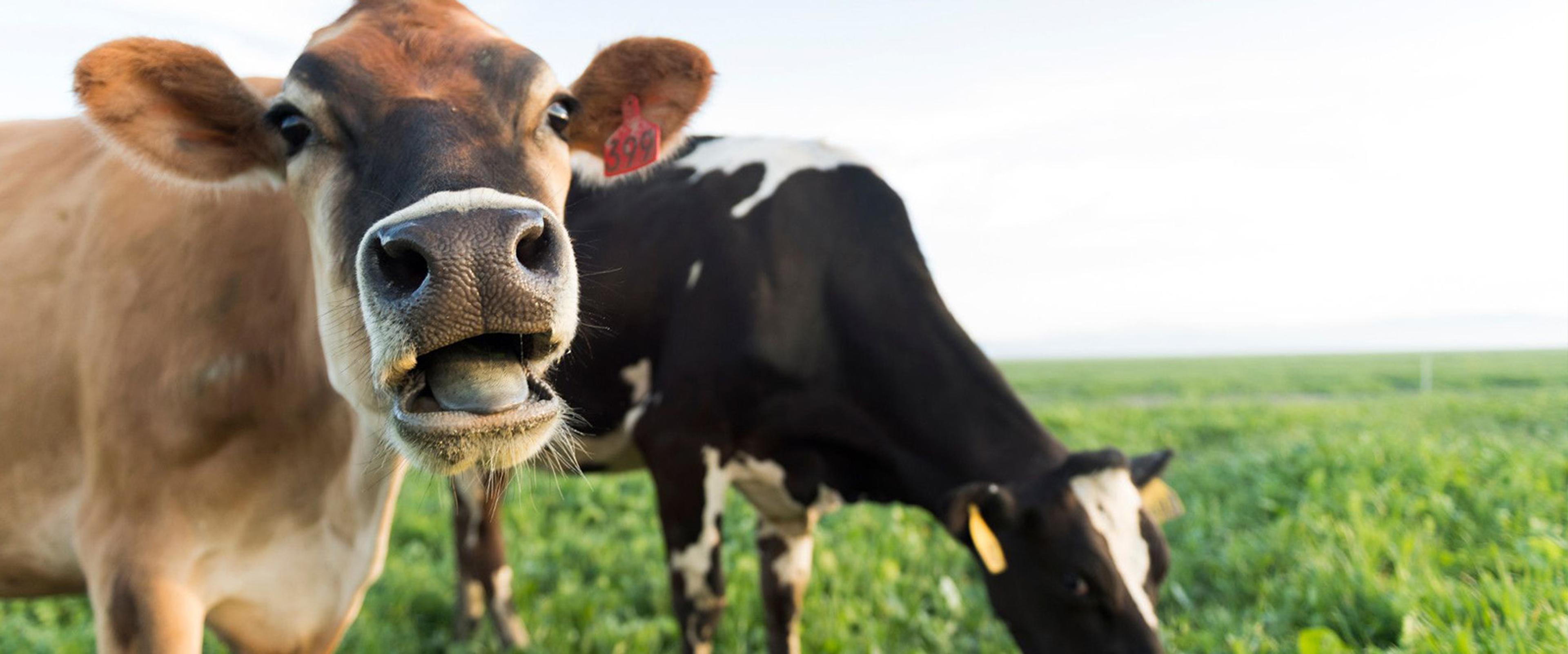
Earth
Check Out Our Carbon Hoofprint!
Organic Dairy Farms Average 24% Lower Greenhouse Gas Emissions
Organic Valley just got some pretty big news about keeping our emissions pretty small. It ends up, Organic Valley’s national dairy farm average greenhouse gas emissions are 24% lower than other conventional U.S. dairy averages!
How did we figure this out? Well, we didn’t but a research team led by University of Wisconsin-Madison associate scientist Dr. Horacio Aguirre-Villegas did. The team conducted a first-of-its-kind study that accounts for carbon sequestered by cows on pasture.
We Love Pastures!
Who knew that eating grass could help combat climate change? Organic Valley farmers understand the importance of getting the cows out of the barn and onto pasture. Pasture—plots of land for grazing—ensure cows are getting the nutrients they need and living as nature intended. But pasture provides so much more!

Bronson Voegeli, Wisconsin, helps move fencing to ensure cows have access to fresh pasture.
Grass is good for the earth. Well-managed pasture eliminates the need for tilling the ground and pulls carbon from the atmosphere and stores it in the soil. The more grassy pastures there are, the less CO2 in the environment! Pasture also provides habitat for insects, birds, and plants.
What Is a Life Cycle Assessment?
Back to the study. As compared to a U.S. dairy farm life cycle assessment or LCA—a tool to assess the environmental impacts of a product, process or activity across its life cycle—found that carbon sequestration in the organic pastures of Organic Valley member farms reduces greenhouse gas emissions by an average 15%.
Check out this video for a refresher on carbon sequestration.
The science proves that when you have pasture-based systems and organic crop production you have a smaller carbon footprint, said Nicole Rakobitsch, Organic Valley director of sustainability.
“We are proud that farms in our cooperative average the lowest known carbon footprint of any U.S. dairy supply, but we are not going to rest on that outcome,” she said. “We are committed to helping our farmers and all dairy continually lessen our GHG (greenhouse gas) emissions. It’s the right thing to do and consumers are looking for food that is good for the planet and their health.”

Cows munch on greens at the Sauder family farm in Colorado.
Committed to Carbon Neutral
Since Day 1, Organic Valley has been dedicated to the health of the planet. We continue to have big goals. The cooperative intends to be carbon neutral by 2050. Carbon neutrality is when the amount of greenhouse gas emissions produced are reduced at the source and the remaining removed by plants through carbon sequestration, leaving a zero balance.
We will reach carbon neutrality through more on-farm sustainability programs that meet, or go beyond, Natural Resources Conservation Service standards such as tree plantings, improved manure management, renewable energy, energy efficiency, agroforestry, and enhanced grazing and cropland practices. The intent is to be 15% toward carbon neutrality by 2030, and 30% toward carbon neutral by 2035.
Small organic family farms—not just Organic Valley farms—are helping the environment in a big way by allowing cows on pasture. By supporting small farms you help support a healthy planet.
“Dairy can be done sustainably, and grazing animals on pasture is a big part of the solution for the future of food,” Rakobitsch said.
We are passionate about doing what’s right for people, animals, and earth and are committed to bringing ethically made organic food to families everywhere. To keep the good going through grass, look for Organic Valley products at a store near you.
Related Articles
 Earth
EarthOrganic Valley Farms Harness Nature’s Superpowers to Fight Climate Change
Read moreby Jessica Buer Luhning
Tags:
- climate,
- environment,
- land stewardship & conservation,
- regenerative agriculture,
- biodiversity














